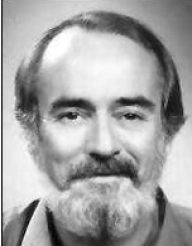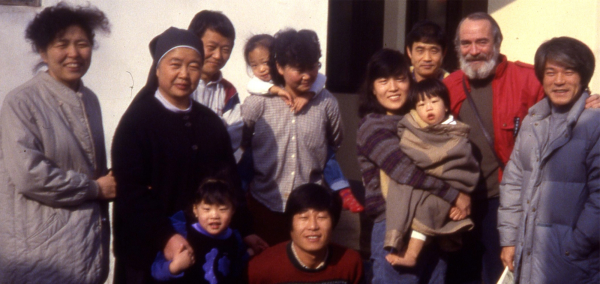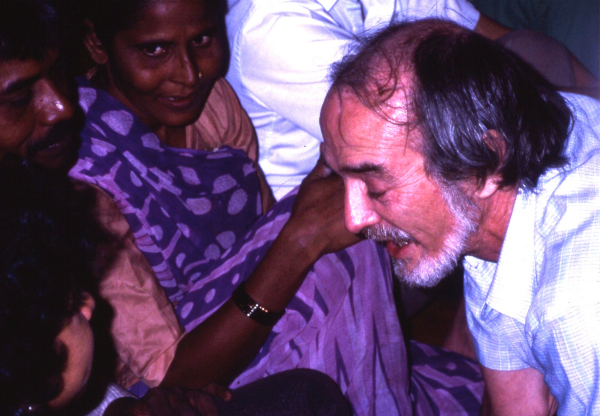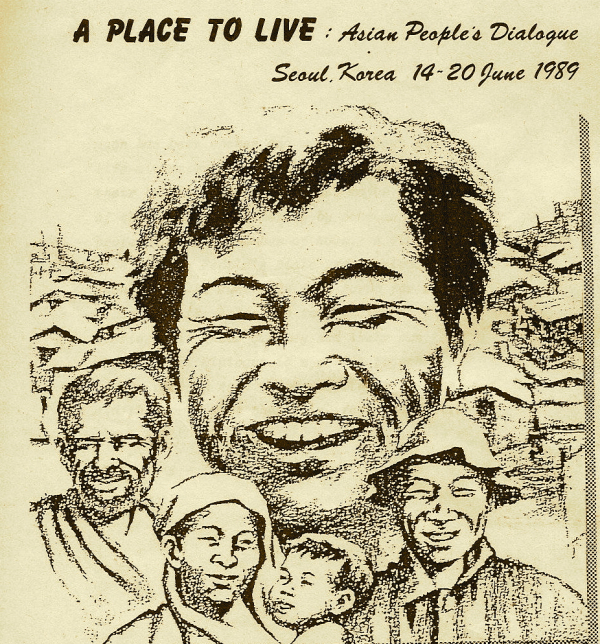- Home
- About us
- Activities
-
About us
- News & Update
- Library
- Countries
- extra
- contact
Goodbye to Father John Daly, long-time friend of the poor in Korea
June 08, 2014

Sad news arrived from Korea. Fr. John V.Daly passed away this week。
He spent his life for the poor of South Korea.
Father Jung Il-woo(John Dali )came to Korea in September of 1960. While learning Korean he taught English and philosophy as an instructor at Sogang University. Beginning in 1963 he studied theology at St. Louis University and was ordained a priest in June of 1966. Returning to Korea he became the assistant novice master, then the novice master.
In November of 1973 he stopped teaching at Sogang Unversity and went to stay at the Cheongkye Stream shack settlement. He wanted to live with his whole body, not just by talking. There he met Je Jung Gu. The two were of one mind, and when they were evicted from Cheongkye Stream settlement they went to live in the Yangpyeong-dong shack settlement. In 1977 the government evicted everybody from that settlement. Father Jung Il-woo teamed up with Je Jung Gu and they established Bogumjahri Village in 1977, Handok Housing in 1979, and Mokhwa Village in 1985.
During the height of forced evictions in the latter part of the '80s he lived sharing the joys and sorrows of the evictees. He contributed much to the founding of the Catholic Organization of the Urban Poor in 1985, the Archdiocese of Seoul Catholic Urban Poor Pastoral Committee in 1987, and the Asian Coalition for Housing Rights in 1988. In 1986 in the Philippines he received the Magsaysay Award jointly with Je Jung Gu.
For the Society of Jesus in Korea in 1991 he took on the roles of superior of the Hanmom Community for the social apostolate, executive assistant ('socius') to the major superior of the Korean region, and director of Jesuit formation. Beginning in November, 1994 he went to live among the farmers in Samsong Village, Goesan, Chungcheongbuk-do. He lived as a farmer and founded the Nuruk Jesuit Community there. In April of 2002 he became the chairman of the committee on Jesuit social apostolates, as well as the director of Jesuit Tertianship. He lately lived at the Jesuit formation community in Hwagok-dong, Seoul.
From Kirtee Shah,
Dear All
Fr. John Dally's passing away, in a way, puts curtain on an era, though
Fr Jorge, Denis, Bill and others are still holding the fort.
I saw him as a hero and Bogam Jari as his most heroic act.
He came to participate in the 5 city seminar ASAG organised in the mid '80s
in India. They were called "Shelter for the Urban Poor :Local and
International Experience". It ran for 15 days continuous.
The reason I remember it here is wherever John spoke in those
seminars--Ahmedabad, Calcutta, Hyderabad, Mumbai and Chennai--he was an
instant hit. He spoke with clarity and passion. His story had a powerful
message: be one with those you are working with; live with them as they
live; see them as change agent; trust them to solve their problems. With his
coloured beard and shinning eyes, he looked like a film star. And he related
with people with immense warmth.
It is over 3 decades now. A few years ago, I went to see him at his place in
Seoul. He was not the same charismatic person. But the fire was still
burning. I will not forget his passionate embrace.
It was wonderful to have met you and known you and admired you Fr, John
Dally.
You were very special.
Though we lived far and did not connect, that you were there was a great
feeling. It filled one up when there was an occasion to remember you.
Now that you are not there, it feels a bit empty.
Wish you peace up there.
That place is getting crowded with our people. Fr. Norberto Cancellar has
barely reached there.
We can ill afford this procession.
In prayer and silence
kirtee

Recalling Jung Il-woo (Fr. John V. Daly, S.J.)
Homily of Fr. Park Mun-su, S.J. delivered at Fr. Daly’s funeral Mass
4 June 2014
I entered the Wisconsin Province of the Society of Jesus (‘Jesuits’) 7 years after Jung Il-woo, but I didn’t get to know him until I came to Korea in 1969. In the autumn of that year President Park Chung Hee was putting a lot of pressure on the national assembly and on the media in order to force through his amendment to the Korean constitution to allow himself a 3rd term as president. One day when I returned from Korean language school I saw a fellow Jesuit, who had come to Korea from the U.S. just one year before, making several phone calls to media reporters he knew. He was telling them that Fr. Jung Il-woo was carrying out a personal demonstration in downtown Seoul. Fr. Jung had written a brief statement, “Oh, Korea! I am sad. Freedom of the press is dying!” attached it to his clothing, and was walking the streets of downtown Seoul talking with people. He was soon arrested and the police said to him, “Korea has freedom of the press.” So Fr. Jung replied, “Then why am I being arrested?” Top Jesuits intervened for him and he was able to avoid deportation.
In 1971 when Fr. Jung was novice master of Korean Jesuits he took training in community organization. He sent his novices to live for a time in public housing or squatter settlements. One novice returned to the novitiate for a rest and tried to convince Fr. Jung that his sending the novices to live in such places was mistaken. Fr. Jung told him he couldn’t be a Jesuit unless he went back and lived out his time in the public housing. Unfortunately, the novice disobeyed and had to leave the novitiate.
When Fr. Jung went to live in the squatter village along Chongkye Stream I was studying in Hawaii so I couldn’t share in his experience. However, he himself has shared his experiences there, as recorded in the book Jung Il-woo Iyagi (in Korean), so nicely published by the JeJungGu Memorial Project. The very first day he moved in there he met Je Jung Gu, and the two of them experienced such a deep sense of shared thought and feeling that they spent almost the entire night talking. This was the beginning of a friendship that brought both of them to new experience of God and also came to have a significant effect on the history of Korea.
When Park Chung Hee issued emergency decrees to solidify his dictatorship all the activists at Chongkye stream squatter settlement were arrested and the people’s movement, lacking leadership, scattered. Fr. Jung and Mr. Je realized that the Alinsky method of confrontation had prevented the formation of leadership among the squatters, so they began anew in the squatter settlement in Yangpyong-dong, Seoul, by living quietly as neighbors to the residents. They prepared one room for Je Jung Gu and his wife, Shin Myong Ja, one room for Fr. Jung, and one room to be used as a small gathering place for residents. Many residents would drop in there frequently for a cup of tea and conversation.
In 1976 the Yangpyong squatter settlement was scheduled for demolition. The idea of moving as a group to a new location came up, and, as a clear sign of the level of community dialogue that had been achieved, 170 households agreed to join in a community project building their own houses. It was quite daunting for these families to consider moving to an abandoned grape orchard in Shiheung, more than an hour from Seoul by public transportation. In a spirit of hope they named their planned village “Bogumjahri”, which means “place of good news.” In 1980 I interviewed 25 of these families. One of the most common comments was “It was difficult. There were fights every day.” The people agreed, though, that what most gave them hope to continue building their houses and a village community was the dedication of Fr. Jung and Mr. Je, and seeing them joining in the common labor of laying bricks. As we all know, one of Paul Je’s books is entitled Laying Bricks with a Priest. In that village the community of activists acted as a communication center. Four activist families shared 30
 of space and their small central space served as their dining room. Villagers gathered at that dining room frequently, and talking and laughter went on and on. The ‘unfortunate’ children who were raised in that crowded residence have now grown up to be outstanding communicators.
of space and their small central space served as their dining room. Villagers gathered at that dining room frequently, and talking and laughter went on and on. The ‘unfortunate’ children who were raised in that crowded residence have now grown up to be outstanding communicators.There was also a 2nd Bogumjahri village built nearby, but by now residents of both of these villages have scattered and apartments have been put up on that land. The only remaining village community is the third one, named “Mokhwa Village.” The elected leader of Mokhwa Village told me at the wake for Fr. Jung that Fr. Jung was like a mother to their village. He gathered them together and gave them hope when things were difficult. I remember hearing from Fr. Jung how difficult it was to form that community. On one particularly difficult day a misunderstanding arose and one man brandished a knife, threatening Fr. Jung and Mr. Je. After that Fr. Jung remarked to me, “Maybe I should go to Thailand. The Thai people are so gentle.” In mothering Mokhwa Village Fr. Jung even suffered birth pangs.
After the Bogumjahri villagers had gained financial and spiritual maturity Fr. Jung moved to Seoul to become superior of the Hanmom Jesuit Community, a community of Jesuits engaged in social action. The community needed space for up to 10 members. Fr. Jung found a small but serviceable Korean-style house in Kongdok-dong. He liked the set-up that made it easy for people to feel part of one family. However, the owner demanded a huge key-money payment of 60,000,000 won (returnable on moving out). The house helped form a warm community, and many people came to visit Fr. Jung and spent hours with him in conversation. The owner invested our key money in starting what he thought was a fantastic business venture. He went bankrupt a year later, unfortunately. In 1998 we decided to move the Hanmom Community to Muak-dong, where we were engaged with the local people. The owner had no money to repay our key money, so he was forced to sell the house. That was the time of the Asian currency crisis and the housing market was dead on its feet. The house got sold at a discount rate, however, and that was a great experience for us of having our prayers answered, and also a sign of the owner’s good conscience.
We are all here fondly remembering the charisma of Fr. Jung that attracted many people to him and helped build community around him. We miss our friend who has gone to God. His personal charisma is now gone, but the principles he represented are still with us. The five basic principles of ministry to the poor which formed during the Bogumjahri experience are still the basic principles of the Seoul Catholic Archdiocese ministry to the poor. His love for the poor and ability to form close relationships with them are now strong principles which all Jesuits are expected to live out. We who remain after Fr. Jung has gone must put these principles into practice in our own lives. As Christ’s Spirit comes to each of us we will then develop our own personal charisma.

In Bombay - early 90's - Many in ACHR will remember ....

Fr Daly ..... A key organiser and friend in ACHR's historical first Asian People's Dialogue ........
Fondly remembered as a fighter for South Korea's urban and rural poor ......





